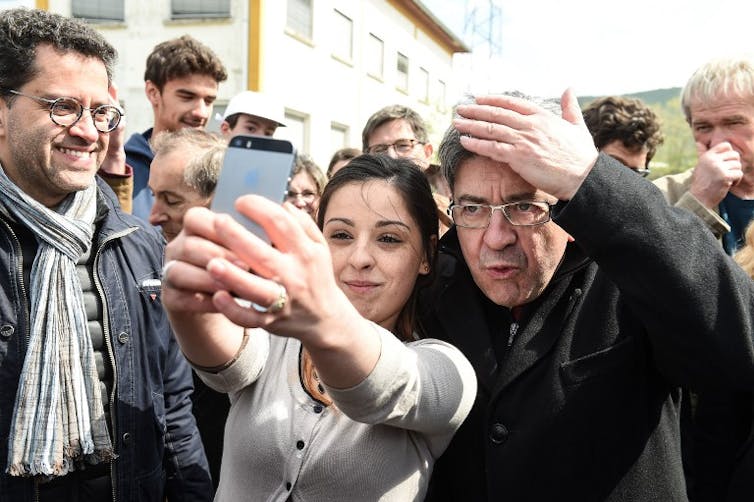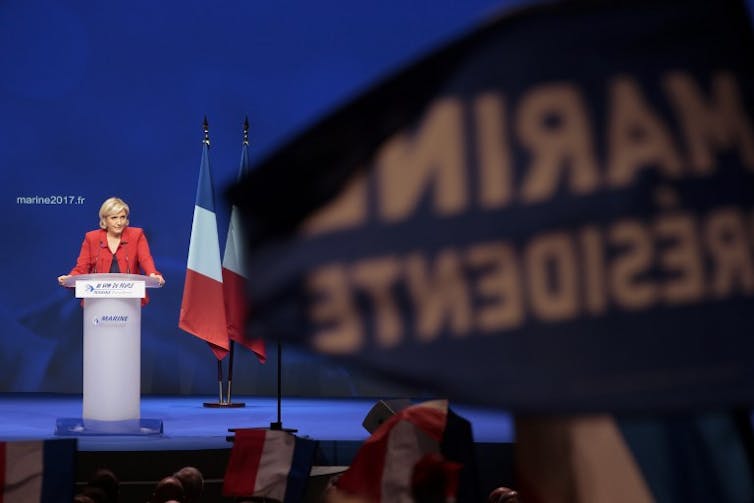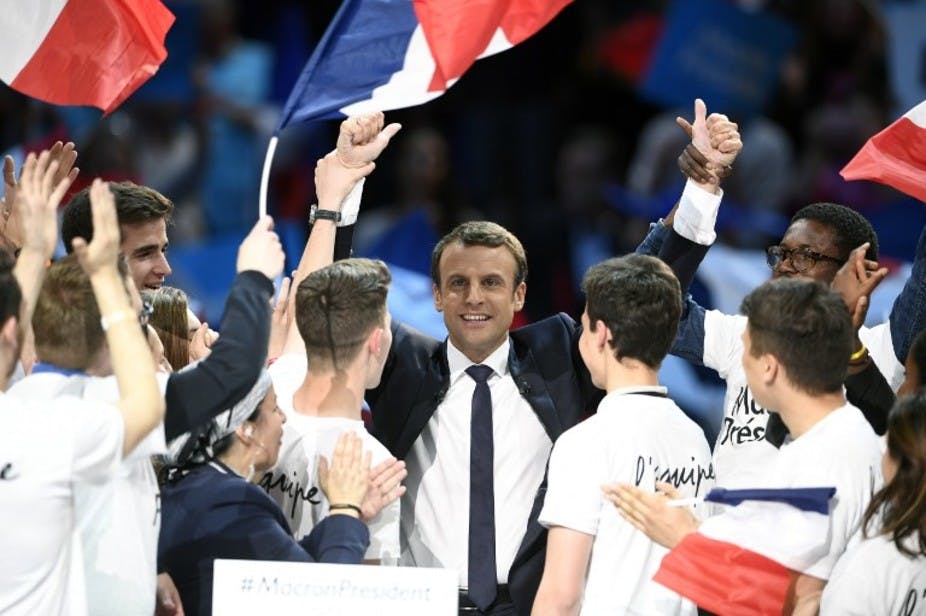The rise of nationalism across the European Union and in the United States has led to much discussion about the impact on global trade, the future of trading blocks and the changing nature of politics. One common factor among these developments has been that young people’s voice appears to have been largely ignored. France appears to be different in that the presidential front-runners have vocal youth support. However, if youth are visible on the stage alongside candidates, does that mean their voices will be heard after the election?
Old and new lenses on the past
One characteristic of the rise of populism is a romanticisation of a past time when a country was “great” and times were somehow “better”. This nostalgic view of the past is something held largely by older voters, while younger voters have only ever known the more precarious times. Indeed it could be said that those young people who entered the labour market during the economic and financial crisis were truly in the wrong place at the wrong time.
With the UK’s EU referendum, it was older voters that helped swing the vote towards leaving the EU: 60% of voters over 65 voted leave while just 27% of those under 25 did. If we factor in the lower participation (and registration) of young people, the missing voice of young people becomes even starker.
Paying the price of nationalism
Young people have much to lose from a more insular perspective of nationalisation and a desire to turn back time. Open borders and the promotion of a spirit of inter-nation cooperation have created a youth cohort who have seen the benefits of European integration. Admittedly, these young people are among the more privileged in each country but their concerns around the end of student mobility and loss of European identity are very real. While the consequences for youth in Britain are now becoming obvious, these risks are present across Europe with the rise of nationalism.
Young people’s weak position amid these emerging political trends can be replicated in terms of their representation in key political decisions. Research confirms that young people were among the hardest hit by the economic crisis, experiencing rapid rises in unemployment and declining employment opportunities. Yet we also see that the polices enacted to address the crisis were not necessarily in their interests or were weakly implemented. Young people are on the wrong side of an intergenerational divide that threatens to deepen inequalities across age groups as well as inequalities between households and families.
Can young people engage politically?
Election turnout has long been lowest amongst youth, and this trend seems to be on the rise. In the 2014 European elections only 27% of French under-35s voted. Furthermore, Europeans’ membership in political parties has been declining.

Yet elections are not the only means of political engagement. Research has shown that protests are especially popular amongst those under 34, in France and elsewhere. Likewise, Nuit debout, similar to the Occupy Movement elsewhere in the world, has offered an alternative form of political engagement – a space for public discussion and cooperation without traditional hierarchies.
Investigations of young people’s use of social media as a form of political engagement highlight the potential for these platforms to encourage critical engagement by increasing their ability to share and discuss politically relevant information.
Online engagement, offline influence?
While alternative forms of engagement are invigorating, they may be difficult to translate into political power and influence. Although there is some evidence to suggest that online political engagement is correlated with offline participation, as long as young people fail to turn out for elections, politicians have fewer incentives to cater to their interests, fueling a cycle of disaffection.
France is perhaps different in this respect. The foregrounding of young supporters and politicians by the Front National appeals to a neglected demographic: recent polls show 39% of 18- to 24-year-olds intend to vote for Le Pen. And there are indications that other parties are also making greater efforts to build their youth share. Recent polling shows Macron to be second to Le Pen among 18 to 24-year-olds and neck-a-neck in the 25-34 age group. This could in part be attributable to the “Youth with Macron” group’s online engagement strategies. For the Socialists, Hamon’s signature universal basic income policy has been a primary point of appeal to young people and the interactive explanations on the campaign website aim to appeal to digital natives. This seduction of youth is a trend emerging in other elections as well.

There are also attempts to mobilise young people without an explicit agenda. In the run-up to the presidential election, Voxe.orghas attempted to capitalize on and develop the link between online and offline engagement with the #Hello2017 initiative. Their website offers attractive, video-heavy explainers of parties, candidates and policies with debates taken into the “real world” at cafes and bars.
The extent to which these initiatives deliver a higher youth turnout and a true voice for young people’s concerns will be seen in the short term in the two rounds of the French presidential election and then in the medium term as policies of the new French president are put into place. Whatever the outcome, the rise of precariousness and disaffection means that building a political voice for young people has never been more important, both in France and elsewhere in the world.


